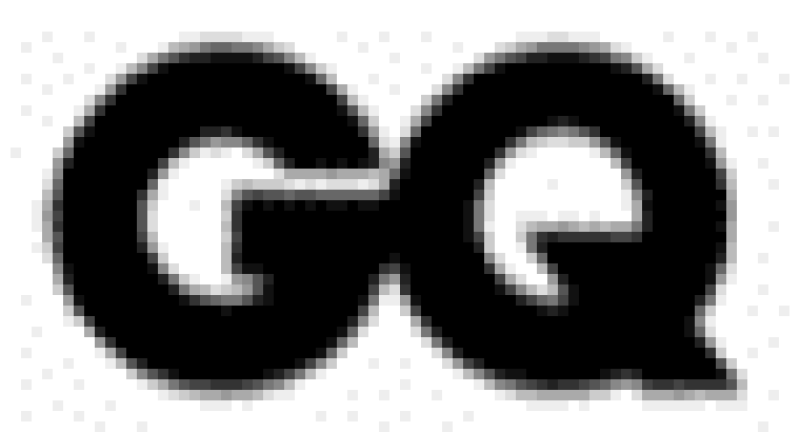Copyright
There have been many significant cases since the revision of the Chinese Copyright Law in 2020, and copyright cases are the largest portion of intellectual property (IP) cases handled by Chinese courts. Cases related to non-fungible tokens (NFTs) and AI-generated content (AIGC) have attracted significant attention and discussion.
The ‘Fat Tiger’ NFT case
The Hangzhou Internet Court heard the ‘Fat Tiger’ vaccine case on April 20 2022, relating to a cartoon of a tiger receiving a vaccine, and issued its judgment shortly afterwards. It found for the copyright owner.
The court found that a transaction of an NFT digital work is subject to the copyright owner’s right of information network dissemination under the law. The court held that the defendant contributorily infringed the plaintiff’s right, and ordered the defendant to destroy the infringing NFT digital work by sending it to an inaccessible address (i.e., ‘burning’ the NFT) and pay damages to the plaintiff.
The court confirmed in its decision that an NFT platform may be liable for copyright infringement in China. It held that, as an internet service provider, an NFT marketplace should implement an IP review mechanism and conduct a preliminary ownership check of the digital works on its platform. The court noted that even without receiving a notice from a copyright owner, the platform should generally assess the likelihood that an NFT digital work infringes copyright and take appropriate measures; otherwise, the NFT platform may be liable for copyright infringement. The decision was upheld in the second instance, the Intermediate People’s Court of Hangzhou City.
The court highlighted the following in finding that the defendant has a heightened obligation to take reasonable measures to prevent copyright infringement:
NFT transactions involve the reproduction and dissemination of NFT digital works;
The operator of a platform should therefore be aware that, in addition to owning the digital work, a seller must be the owner of the copyright in a digital work;
If ownership were not guaranteed, it could only serve to weaken the certainty and trust in NFT transactions, which are at the core of the NFT ecosystem;
The platform has significant control over the digital works and possesses the ability to review and monitor the IP without incurring additional cost; and
The platform directly profits.
Sichuan Higher People’s Court rules on the resale of NFT works
The Sichuan Higher People's Court has issued a final judgment in the case of Wang Mouyu v Hainan Lianhe Technology Co. (iBox) concerning an appeal in a dispute over infringement of the right of network transmission of work information.
In response to Wang Mouyu's appeal claiming that the resale of digital collections constitutes infringement of copyright and that the income from the resale of digital collections also belongs to the infringer's illegal income, the Sichuan Higher People's Court held that the resale of allegedly infringing digital collections does not constitute infringement of copyright, and that the income gained from the resale of the NFT works purchased by the buyer is not attributable to iBox. Therefore, the income from the resale of the accused digital collections could not be regarded as illegal income of iBox.
The second trial rejected Wang Mouyu's appeal and upheld the judgment of the first trial.
This case was the first time that a people's court had responded to the legal issue of the resale of NFT works and the question of whether the income from the resale of NFT works was unlawful income for the infringer, following the judgment of the first infringement dispute involving NFT works in China.
AIGC copyright infringement
The Beijing Internet Court issued a decision on November 27 2023 in the first case in China with regard to infringement against copyright arising from AIGC. According to the decision, the plaintiff, Mr. Li, generated a photograph by using Stable Diffusion, an open-source AI software. The photograph was used by the defendant, Mr. Liu, along with his article being published on Little Redbook, one of the primary commercial internet platforms in China, while deleting the waterprint of the plaintiff. Li sued Liu at the Beijing Internet Court on the basis of copyright infringement.
The court held that the photograph per se is sufficiently original and different from other prior photographs or drawings. In addition, the plaintiff made intellectual efforts in the planning and selection of the photograph, including the method of display, the selection of cue words, the sequence of the cue words, and the parameters.
The decision also found that during the process of generation of the photograph, the plaintiff made a design and settled on a layout and selection of the photographs that reflects the selection and arrangement of the plaintiff, adjusting the cue words and parameters before finalising the photograph. The process reflected the original expression of the plaintiff and thus has the requisite originality.
Although the court decision is still within the appeal period and not yet in effect, it has drawn huge attention and sparked fierce debate among scholars and IP practitioners. The core question is whether mere prompts or orders inputted by users should be found as having originality. Specifically, the reason for the opposition is that, different from drawings with brushes or drawing software, prompts reflect the consideration or conception of users rather than fix the content or expression. By contrast, supporters argue that the inputting of parameters and orders reflects a decision concerning expression by the users.
AI technology is still being developed, and the possibility cannot be excluded that AI users could fix a specific expression in the future, thus facilitating the finding of copyrightable AIGC-related works.
It is also noteworthy that the current Copyright Law of the People’s Republic of China provides for open-ended categorisation of works, which means that copyrighted works can be in a different format from the traditional ones that have been listed in the law. Furthermore, Chinese courts are traditionally inclined to protect newly emerged subject matter via the Anti-Unfair Competition Law of the People’s Republic of China (AUCL) before recognising it as a copyrightable work and the recognition can evolve and change, along with technological developments.
Copyrightability issues and conflicts of rights
Copyrightability issues are a regular focus in disputes; in particular, when copyrights are used to protect brand owners from imitation or pre-emptive registrations. Among others, in Conde Nast v Lv Biao, Haidian District Court and the Beijing IP Court held that the logo below is copyrightable given the originality of the logo, also taking into account bad faith of the registrant and the confusion caused among the relevant public.

The author notes that Chinese courts are inclined to recognise copyrightability originally authored with a minimum creativity requirement, similar to common law countries. The author and the Tahota team successfully persuaded the courts in the recognition of the relatively simple letters “GQ” as a copyrightable work, particularly when in the face of bad-faith applicants abusing legal loopholes by registering marks to ‘free-ride’ the reputation of brand owners.
The case above also involves the issue of conflicts of rights, where the registered marks are copies or imitations of logos of brand owners. The case reaffirms that the registration of a mark may not necessarily justify its use if the marks are infringing upon the prior copyrights or famous trade names of others. Therefore, IP owners are authorised to pursue IP infringement against an unauthorised user without waiting for the finalisation of an invalidation claim against a bad-faith trademark registration.
Unfair competition
The Anti-Unfair Competition Law of the People's Republic of China
The State Administration for Market Regulation published the Anti-Unfair Competition Law of the People's Republic of China (Draft Revision for Public Comments) on November 22 2022, which is a new revision following revisions in 2017 and 2019, with the AUCL having come into force in 1993. The revision includes a large number of issues that have not yet been addressed.
Commercial data and algorithms
The revision addresses the protection of commercial data by using a legal regime similar to trade secret protection under the same law. It specifically prohibits unauthorised acquisition, use, disclosure, or licensing, as well as use outside the scope of a licence agreement.
The slight difference from the trade secret protection regime is that commercial data has no specific scope of protection, whereas other IP rights, including trade secrets, would make a comparison between the right basis and the accused products. Instead, the protection of commercial data would more likely be addressed from the perspectives of the good-faith principle and whether the accused’s acts would inflict harm on the competitor, increase the operational cost of a competitor, or disturb competition order.
In many cases, data and algorithms have been abused by platform owners or their competitors to pursue illegal commercial interests; e.g., data crawling. The draft of the AUCL prohibits the abuse of data and algorithms with the aim of using them to disturb fair competition or market order, or otherwise discriminate or limit competitors or consumers.
Expansion of categorised infringements in cyberspace
The draft expands infringing acts in cyberspace by adding:
The establishment of searchable key words, and false operation to deceive or mislead users; and
An interception or a shield against other legitimate operators.
Perfection of a clause on acts that cause confusion
The draft adds the names of self-controlled media and the names of apps as subject matters of protectable commercial signs, including searchable key words. The draft also adds the distribution of infringing goods as a part of infringing acts.
Abuse of relatively advantaged position
The amendment reintroduces the controversial issue of ‘relatively advantaged position’ (RDP). The RDP has largely expanded the scope of abuse of dominant position as provided in the Anti-Monopoly Law (AML), which prohibits the abuse of such a position, including exclusive dealing, tying, market division, and price discrimination. The introduction is designed to restrict the behaviour of monopolists.
This provision was long debated during the last revision of the AUCL and did not enter into the 2019 AUCL due to it being overly broad and vague. Notably, the requirement of holding a dominant position under the AML is strictly defined. By contrast, the draft, in its supplemental provisions, sets forth that RDP refers to the advantages of a business operator with regard to technology, capital, number of users, or industrial influence, as well as the reliance that other business operators may have on it. Such a definition is still overly broad and vague, which may cause confusion in implementation.
Harshening the punishment against contributory violators
Article 28 of the draft provides that a distributor of confusing goods that knew, or should have known, about the confusing acts, or intentionally provide facilities for confusing acts, shall be punished. A distributor that has no knowledge of the confusing acts, with evidence to prove legitimate acquisition and providers, shall be ordered to cease the distribution.
Supreme People’s Court issues judicial interpretation on the AUCL
A judicial interpretation (JI) on the AUCL by the Supreme People’s Court addressed the following issues.
Business ethics
Article 3 provides that the code of conduct generally observed and recognised in specific commercial fields may be deemed by people's courts as "business ethics".
The people's court shall judge whether an undertaking violates business ethics, in light of the circumstances of the case and in comprehensive consideration of factors such as industry rules or business practices, the subjective state of undertakings, the willingness of transaction counterparties, the impact on the rights and interests of consumers, market competition order, and public interest.
The new JI provides guidance on the production of evidence to prove a violation, which is very useful to IP owners.
Imitation
The revision expands the scope of “certain relationship”. Article 6 of the AUCL sets forth that ‘confusing acts’ includes behaviour that is misleading others, such as the following:
A business allows its commodities to be mistaken for those of others (direct confusing acts); or
A business believes a certain relationship exists between its commodities and those of others (indirect confusing acts).
The revision also adds a new type of subject matter into protectable “influential commercial signs” under Article 6 of the AUCL. It provides that unauthorised use of Article 6.1.1 (commercial sign), 6.1.2 (trade name), or 6.1.3 (website sign), as well as using a registered mark and an unregistered well-known mark, shall be found as constituting an unfair competition act.
Statutory damages
The JI expanded the scope of application of statutory damages by adding false advertisement, commercial defamation, and internet-based infringement.
Supreme People’s Court changes leapfrog appeal procedure
On October 27 2023, the Supreme People’s Court released The Decision of the Supreme People’s Court on Amending the Provisions of the Supreme People’s Court on Several Issues Concerning Intellectual Property Courts which would come into effect on November 1, 2023. The court also issued a notice on implementation of the revised provisions.
The revision changes the leapfrog appeal procedure, whereby the second instance of technology-related disputes shall be tried directly by the Supreme People’s Court, by removing matters regarding:
Contract disputes in relation to technological issues; and
“Less important and less complicated” civil disputes in relation to utility model patents, technical secrets, and software.
However, the SPC will still try all cases in relation to patent invalidation proceedings and administrative cases or civil disputes concerning invention patents, new plant varieties, integrated circuit layouts, and anti-monopoly.
Part one covers the general provisions concerning the protection of intellectual property in China and the key issues and legal framework regarding trademarks










